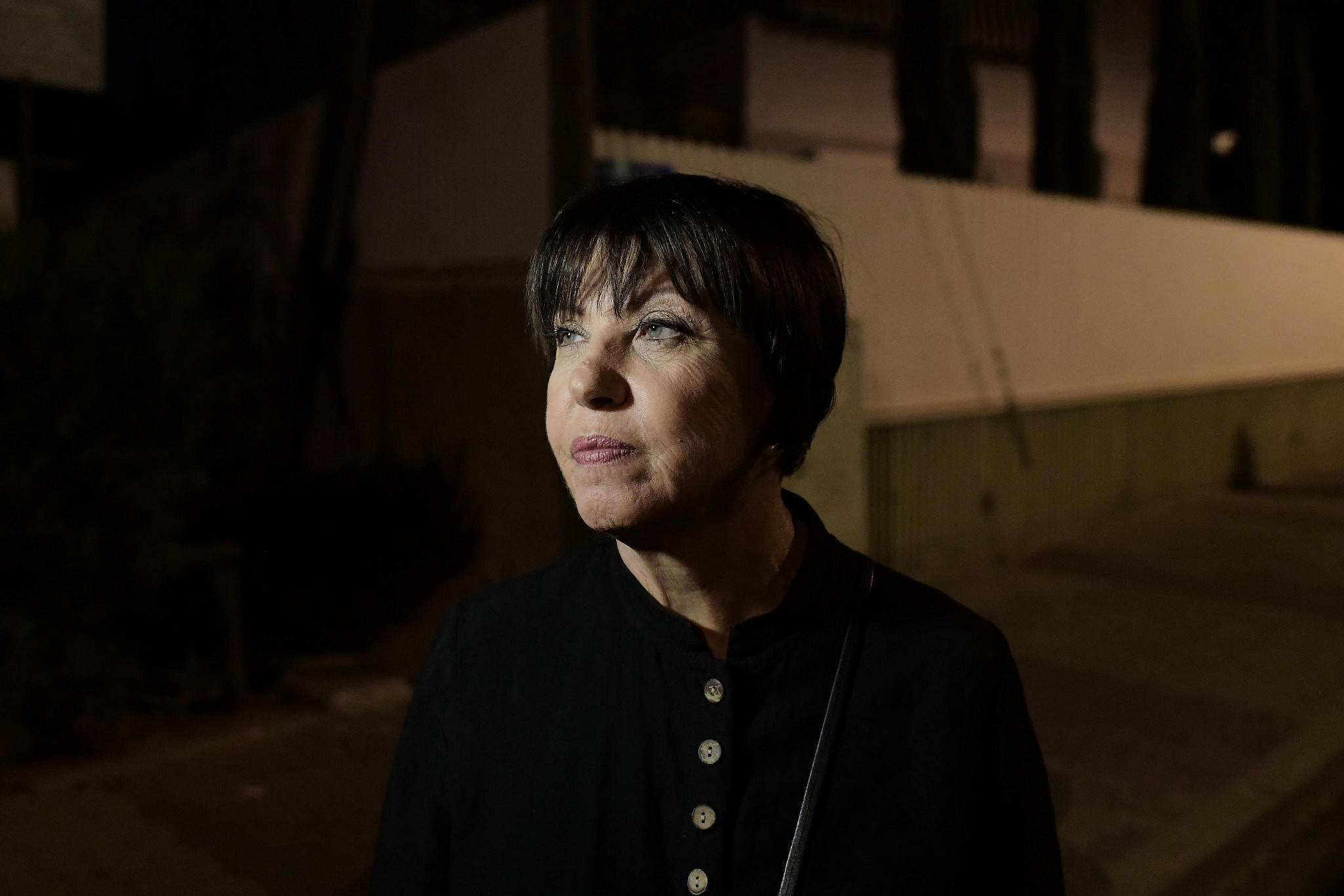It was good to be Zehava Galon, sitting at a cafe in the north Tel Aviv neighborhood of Neve Avivim, last week. Every few minutes, someone would approach to congratulate her on her recent victory in the Meretz primaries, promising to vote for her in the upcoming election on Nov. 1. One of the waiters thanked her for what she has done for the LGBTQ+ community. Another person even asked to vote for her twice.
It is true that north Tel Aviv is supposed to be the home turf of the Zionist left party, but as Benjamin Netanyahu taught us, a politician must first of all maintain their base. And, at least according to this very unrepresentative sample, Meretz’s base is with Galon.
Galon, who was re-elected party leader last month after a previous stint as chairwoman between 2012-18, says that she is also received warmly in Petah Tikva, her city of residence where Benjamin Netanyahu’s Likud won the most votes in the last round, and is optimistic about Meretz’s result in the upcoming election. While newspaper polls are currently placing the party at around five or six seats, suggesting it should comfortably pass the electoral threshold of 3.25 percent (which equates to around four seats), Galon is far from euphoric. Perhaps the opposite seems to be true.
She returns to Meretz’s leadership with her feet on the ground — both because, as she testifies, she has “grown up,” and also because she is conscious of the new role assigned to her. After having spent almost all of her 15 years in the Knesset on the opposition benches, she takes charge of a party that is part of the outgoing coalition. And she wants to be back in government after the election, as part of a center-left bloc, also known as the “Anyone But Bibi” bloc.
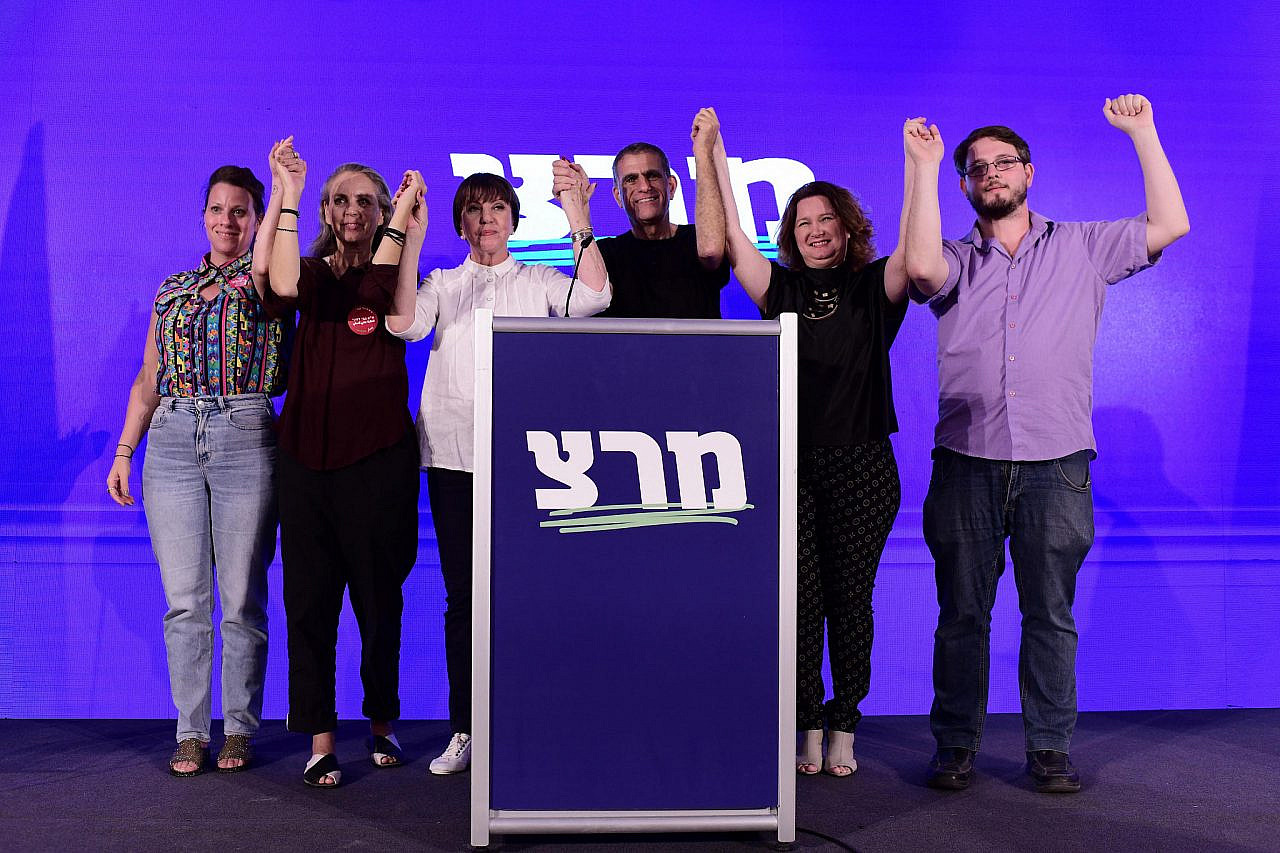
Galon is not ashamed of this slogan. But she thinks that behind it lies a deeper meaning: anything but the elimination of the gatekeepers of democracy, anything but Netanyahu’s economic policy, anything but deporting Arabs and leftists. What the bloc actually supports is much less clear to her.
She is aware that her chances of pushing the Lapid-Gantz government, should it rise again, to make steps toward ending the occupation is not high, to say the least. Nevertheless, she believes that she will be able to achieve something.
Regarding Meretz’s conduct in the previous term, which she herself admits only entrenched the occupation, Galon is cautiously critical. She criticizes, for example, Meretz’s vote in favor of the “apartheid regulations” that maintain separate legal systems for Israelis and Palestinians in the West Bank — these are Meretz’s “core issues,” and that should have been made clear to the coalition.
The only issue for which she openly criticizes her predecessor in the position, Nitzan Horowitz, is his decision to reject the conclusions of the report commissioned by the Health Ministry into the history of racism in the Israeli health system, in particular with regard to its role in the Yemenite Children Affair.
Galon consciously avoids establishing “red lines” for sitting in government, but if there is one issue she repeats over and over again, it is her opposition to any boycott of an Arab party, from Ra’am — which is part of the outgoing coalition — to the more nationalist Balad.
The Arab parties should be part of the government, she affirms, saying that she has also told this to Prime Minister Yair Lapid. When I remind her that in the previous term the Zionist left parties threw the Joint List under the bus, she doesn’t deny it, but assures me that things will be different with her. That remains to be seen.
The following interview has been edited for length and clarity.
Were you surprised by the size of your victory — both your personal success in the leadership battle against MK Yair Golan, and that of the cluster of candidates whose focus is ending the occupation, like Mossi Raz and Gaby Lasky?
I’m happy about my victory, because it was not an easy struggle. It was a struggle between two worldviews inside Meretz: a Meretz that is a mix of social democracy, equality, and justice, but also freedom, i.e. ending the occupation; or a Meretz that is more similar to other centrist parties.
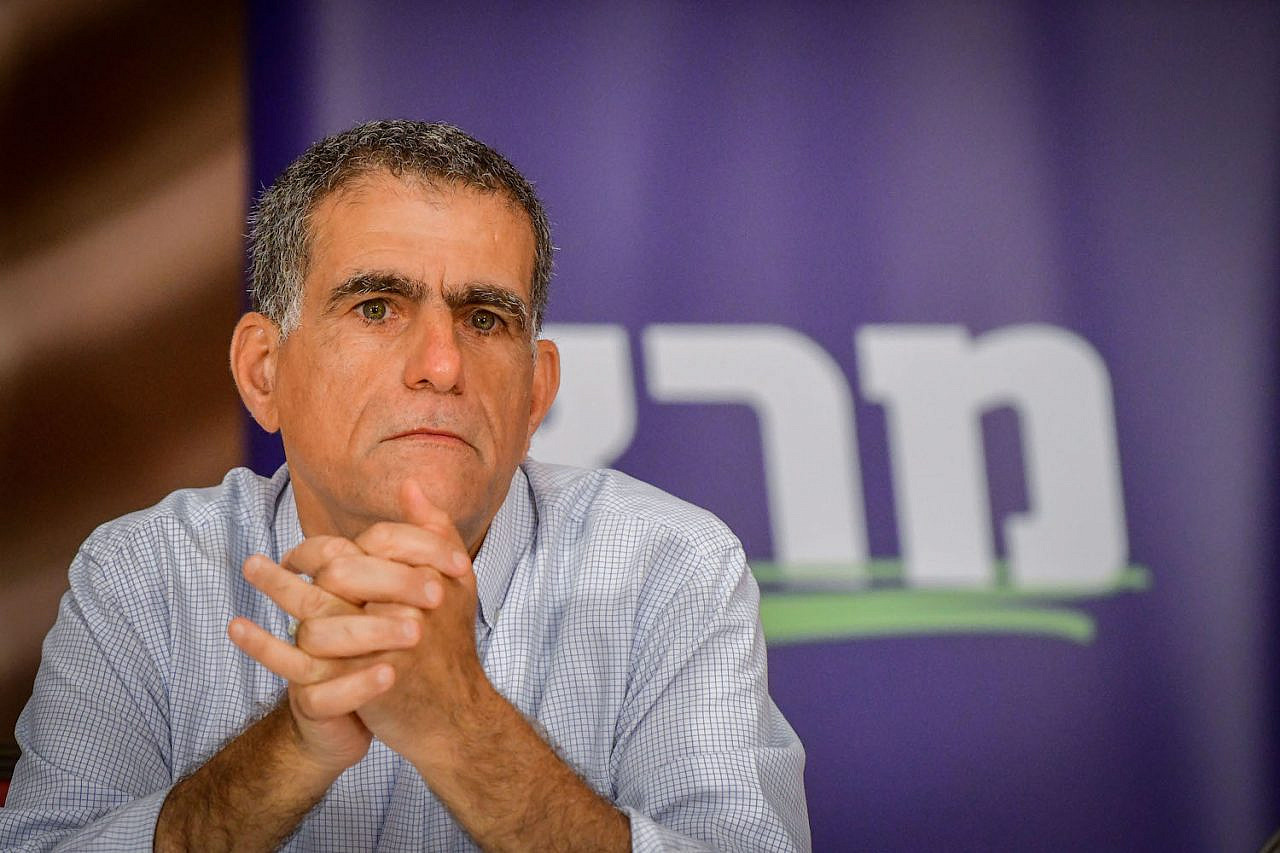
I think that in choosing me, the Meretz membership made a decision. The rest of the list that was chosen was also part of that decision: Mossi [Raz] in second place, Michal [Rozin] in third place, Gaby [Lasky] in sixth place, and Ali Salalha in fourth place. We have four Arab candidates in the top ten places on our list — it’s a message of Jewish-Arab partnership.
Most of your political life was in opposition to the government, certainly as far as everything to do with the occupation is concerned. Now you find yourself in a political bloc that is almost entirely focused on one thing, being anti-Bibi, and the calculations are about how to maintain this bloc. Where does that put you?
I thought about it a lot before I decided to run [for Meretz’s leadership]. I think Nitzan Horowitz achieved something by putting Meretz back into government after 20 years in opposition. I saw how difficult it was for them, and more than once I also criticized my friends in government.
What tipped the scales for me were two things. One is the fear that Meretz will fall below the electoral threshold, and the second is the significance of the coalition. A coalition in which Meretz is a partner, the so-called “Anyone But Bibi” bloc, offers a whole worldview, in my opinion.
It is reductive to say that the only thing that connects us is “Anyone But Bibi.” “Anyone But Bibi” means anyone but those trying to crush state institutions and their gatekeepers; it means anyone but those who want to put Arabs and leftists on trains and drive them out of the country; it means anything but the economy that Bibi is proposing. The cost of living here is rampant, but we are now paying the price for 12 years of Netanyahu’s rule.
When I say “Anyone But Bibi,” first of all I understand the framework in which I’m operating. So is there a possibility that such a government would engage with the Palestinians in the style of Zehava Galon? The answer is no, of course. But are there things that I can restrain through proper dialogue with other members of the coalition who do not share my worldview, like Lapid and other centrists, by sitting in government?
Centrists who just took military action in Gaza, which you yourself opposed.
True, I agree. But I think that if I sit in the government, I will have the opportunity to influence its decisions. I also think that [the other Meretz MKs] who were in the government learned lessons. I know my own character, my personality. Whereas once I would shout at them from the opposition, today I can talk with the defense minister.
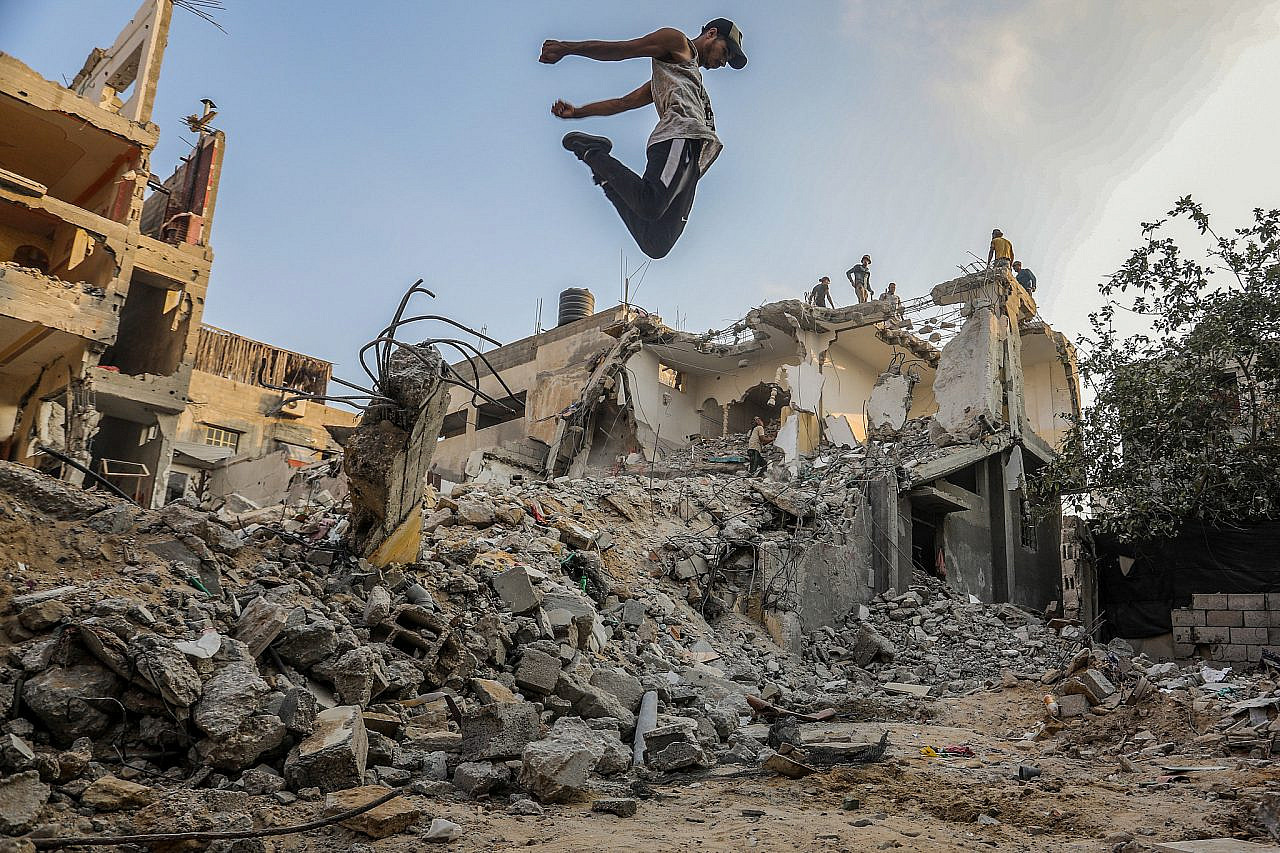
Lapid has expressed in the media more than once that he has an interest in making progress with the Palestinians. I’m not getting into the nature of such a move. I believe that a series of things can be done, which I certainly cannot advance from the opposition. [From the opposition] I can always present the vision: ending the occupation, and a two-state solution.
You yourself wrote that the last year was a year of continuing the occupation, if not entrenching it further. You also thought that the initial support for the citizenship law was a scandal (in the end, Meretz MKs voted against it), and you would not have voted in favor of the “apartheid regulations.”
I never voted in favor of them.
Now, you don’t suspect Mossi Raz or Gaby Lasky of supporting apartheid in the West Bank — they voted in favor in order to preserve the coalition. I know you don’t like talking about red lines, but still.
That is the exact sentence I wanted to say. I will not set red lines. [The Meretz MKs] thought that they were doing the right thing at that particular moment, because otherwise the government would fall. Some of the things they had to swallow were the result of improper conduct. I say this with moderate criticism.
Improper conduct by Meretz?
Yes, I think that on core issues, the coalition must engage its members. Just as Ayelet Shaked had things that were important to her, and Meretz went along with her, the coalition should have taken into consideration that the Citizenship Law is a core issue [for Meretz].
My life could have been easier if I stayed at home, watching from the stands and criticizing. But I think that we’ve crossed into new territory, with the danger looming in front of us. This is not Bibi. It’s Itamar Ben Gvir, it’s Bezalel Smotrich, it’s an entire worldview based on Jewish supremacy, power, and kicking out the Arabs.
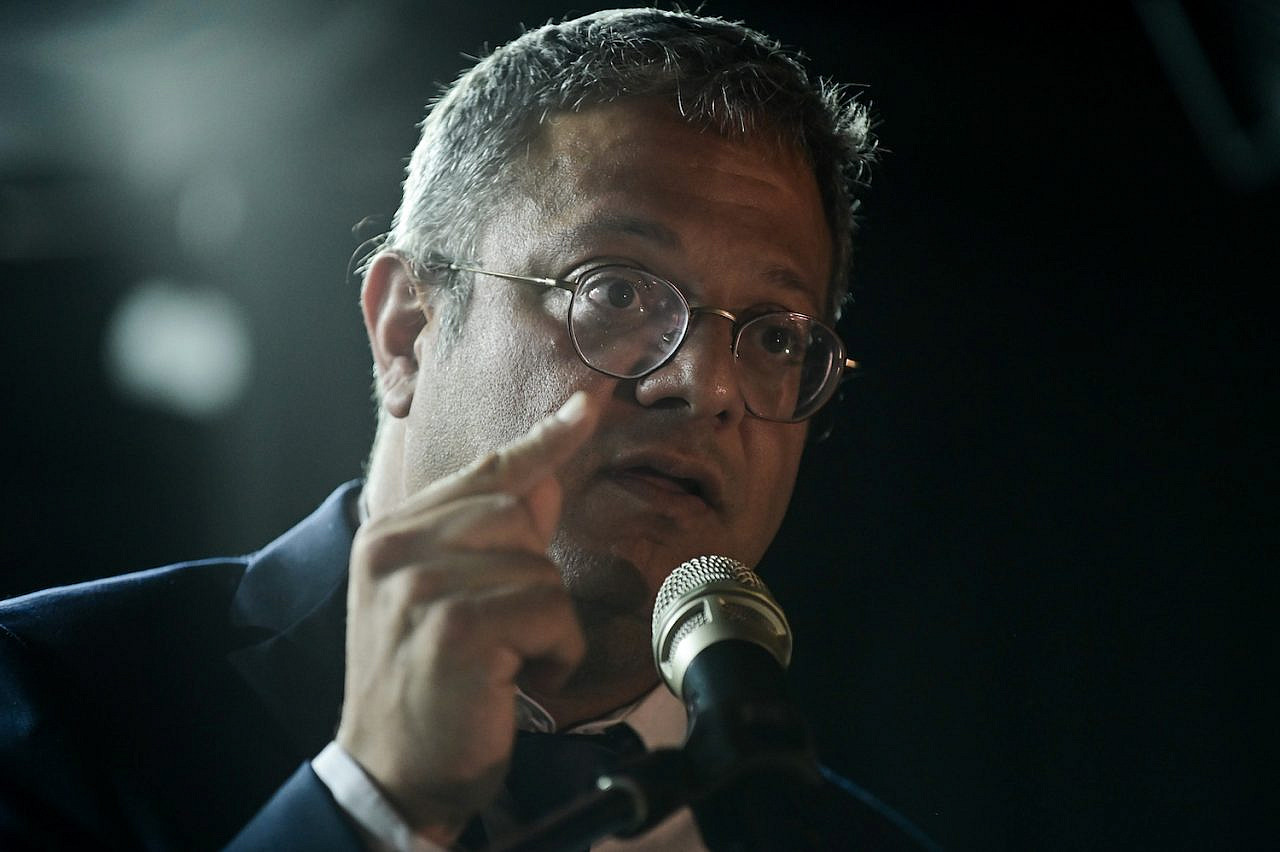
So we have a role, I feel, that is greater than the position we have expressed until now. I’m sorry if it sounds clichéd, but it really is a decision about what kind of country this will be. Are we heading toward equality for Arab citizens, or are we heading for an ethnocentric, closed off, Bibi-Kahanist state?
When you said in December 2019 that Meretz had completed its historic role, I understood that you meant that what is needed now is a Jewish-Arab joint force. In the last coalition there was a real rift between the Zionist left and the Joint List. How do you see this Jewish-Arab partnership?
That statement was wrong, because Meretz received six mandates [in the 2021 election]. But in my view, in the broadest vision, a left-wing, social democratic party does need to be formed here. I would be happy to see Labor in it, Meretz, Jews, Arabs — this is the basis, without getting into party configurations.
Every interviewer tells me: “But Lapid doesn’t have 61 seats because of the Joint List.” I say that the Joint List and the representatives of the Arab community are legitimate partners in power. This is my role. This is our role — no one else is saying this.
I think that my positioning paves the way for more partnership. I take this position because this is what I believe in. We must stand up to those who are labeling people as enemies and traitors, like Ben Gvir, who says we must send Arabs and leftists away on buses and trains. “Anyone but Bibi” is is part of this. And it comes with a price.
What is the price?
A public price. Do you think all the potential voters I want to recruit think this is a good idea?
How does the story of Ghaida Rinawie Zoabi fit into this context? [Zoabi, a Meretz MK, resigned from the coalition in May over Israel’s attacks against Palestinian worshipers at the Al-Aqsa Mosque and the police’s conduct at the funeral of journalist Shireen Abu Akleh, before returning several days later. Her resignation was seen by many as one of the final nails in the coffin of the “government of change” – M.R.]
I think the story of Ghaida Rinawie Zoabi is a blow to Meretz. Her resignation was perceived in the public mind as having led to the dissolution of the government. This made an immediate impact. Meretz was on the brink of not passing the election threshold [in the polls]. Her voters left.”
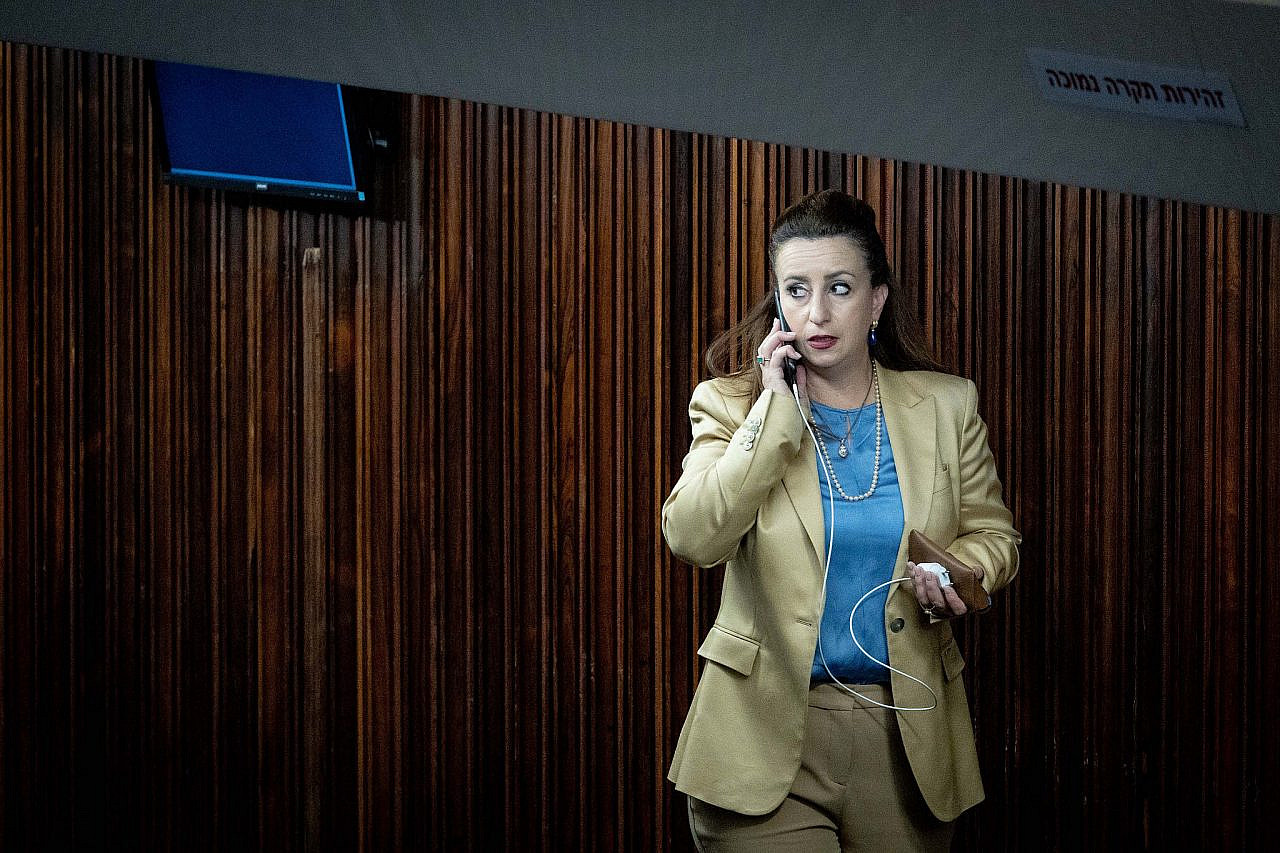
There is another side to this: you brought in a token Arab, and as soon as she opens her mouth, suddenly she is deemed illegitimate?
It’s not a matter of her opening her mouth. It was Meretz’s mistake, they don’t gather candidates carelessly. [Rinawie Zoabi] is a serious woman with credentials and a record. But that doesn’t fit in a party like Meretz. A party has life, it has dynamics, there is a commitment to the party.
I know that Mossi [Raz] can criticize Meretz, but he’ll always stand alongside the party. The [Rinawie Zoabi affair] was an experiment that did not succeed. As opposed to the experiment with Ra’am, which did succeed.
Did it actually succeed?
I have no doubt. It doesn’t matter what they managed to achieve. The fact that an Arab Islamic party, not even a secular one, sat as part of the coalition — this, in my eyes, gives legitimacy to the fact that Arabs can be partners in government.
Even though part of the deal was that there are “good Arabs,” who only talk about budgets, and then there are “bad Arabs,” who suddenly center the fact that they are Palestinian.
I am against this division, against the attempt to create a dichotomy between “good Arabs” and “bad Arabs.” But seeing Mansour Abbas on television as part of the coalition — I think this had great public significance. Not among the people on the left, but among the general public, which has become accustomed to seeing all Arabs as the same — as enemies.
What did you think of Joint List Chairman Ayman Odeh’s statement that Palestinian citizens should not enlist in the Border Police, since it is part of the occupation?
I thought he made a mistake with that statement. It caused a lot of people to get angry at him. Is the Border Police a part of the occupation army? It is part of the occupation army. Was his statement correct? Certainly in his opinion yes, in my opinion no.
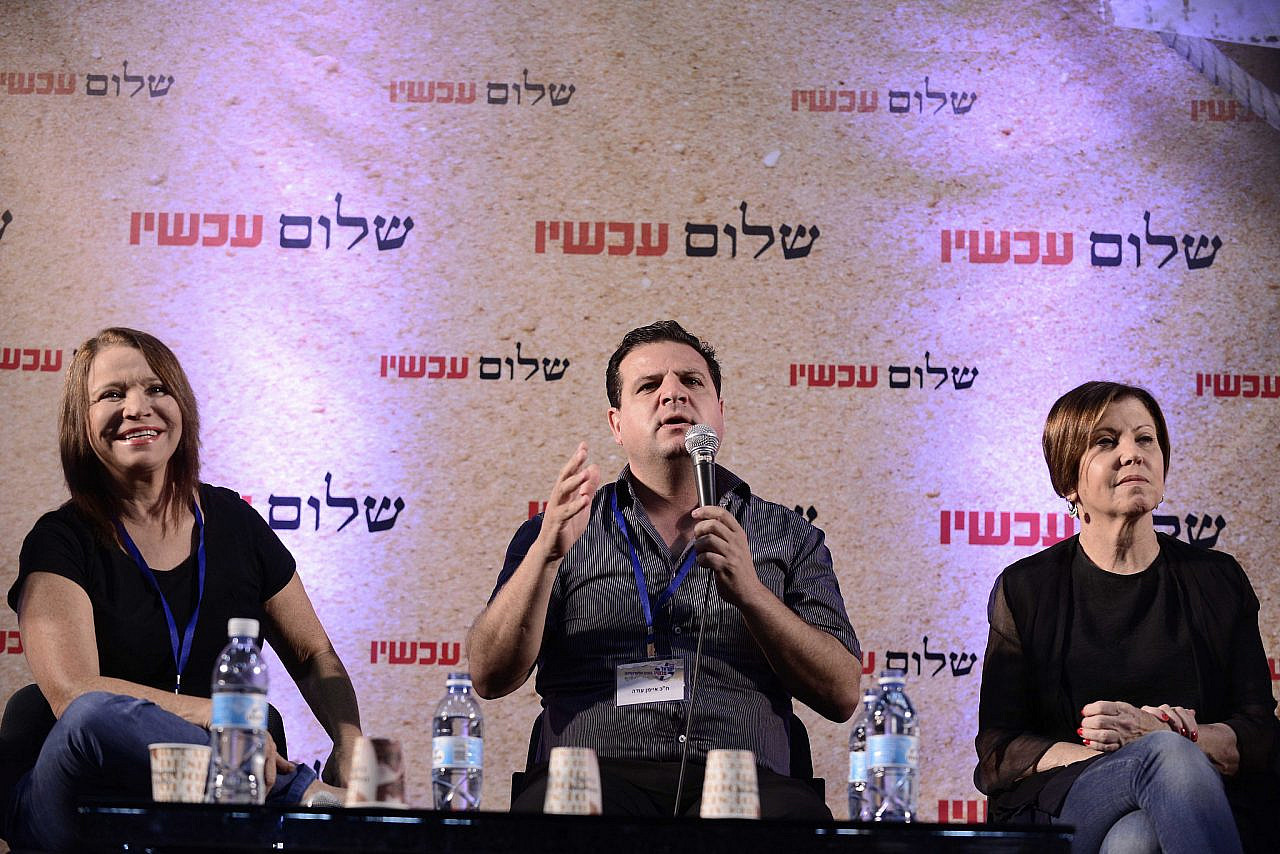
Does this disqualify him from being part of the coalition?
I’ve already said that I don’t rule him out. Even if I don’t sign onto every statement by Ayman or Ahmed [Tibi], I think they are legitimate partners.”
Does this apply to Balad as well?
I treat the Joint List as one unit. I do not like the statement that if Balad weren’t there, it would make life easier. I do not select the Arab public’s leaders for it.
‘What are we so afraid of?’
We’re sitting in a commercial center in Ramat Aviv and everyone is saying hello to you. If we were sitting in Lod or in Dimona, would it look completely different? Can a successful party establish itself in only one part of Israeli society?
The answer is no. In the end, I left because [the party] did not accept my position on open primaries as a means of opening up the party to people from other places, including from the geographical and social periphery. I did not succeed then, but I think that these are processes. I have one goal on Nov. 1: to be strong and powerful. But this is something we’ll need to think about in the future.
As health minister, Nitzan Horowitz prevented the publication of the draft report by Dr. Itamar Grotto [the Health Ministry’s outgoing deputy director general, who was tasked with investigating the ways the Israeli health system was involved in the disappearance of Yemenite children in the 1950s]. What did you make of this?
This was a big mistake by Nitzan. Whom are you protecting, exactly? The report should have been published. I raised the issue of the Yemenite children in the Knesset, after which Nurit Koren established a parliamentary investigatory committee, which I supported. So many people are living with the sense that they were wronged, that until today the state continues to whitewash and cover up. Why shouldn’t they know?
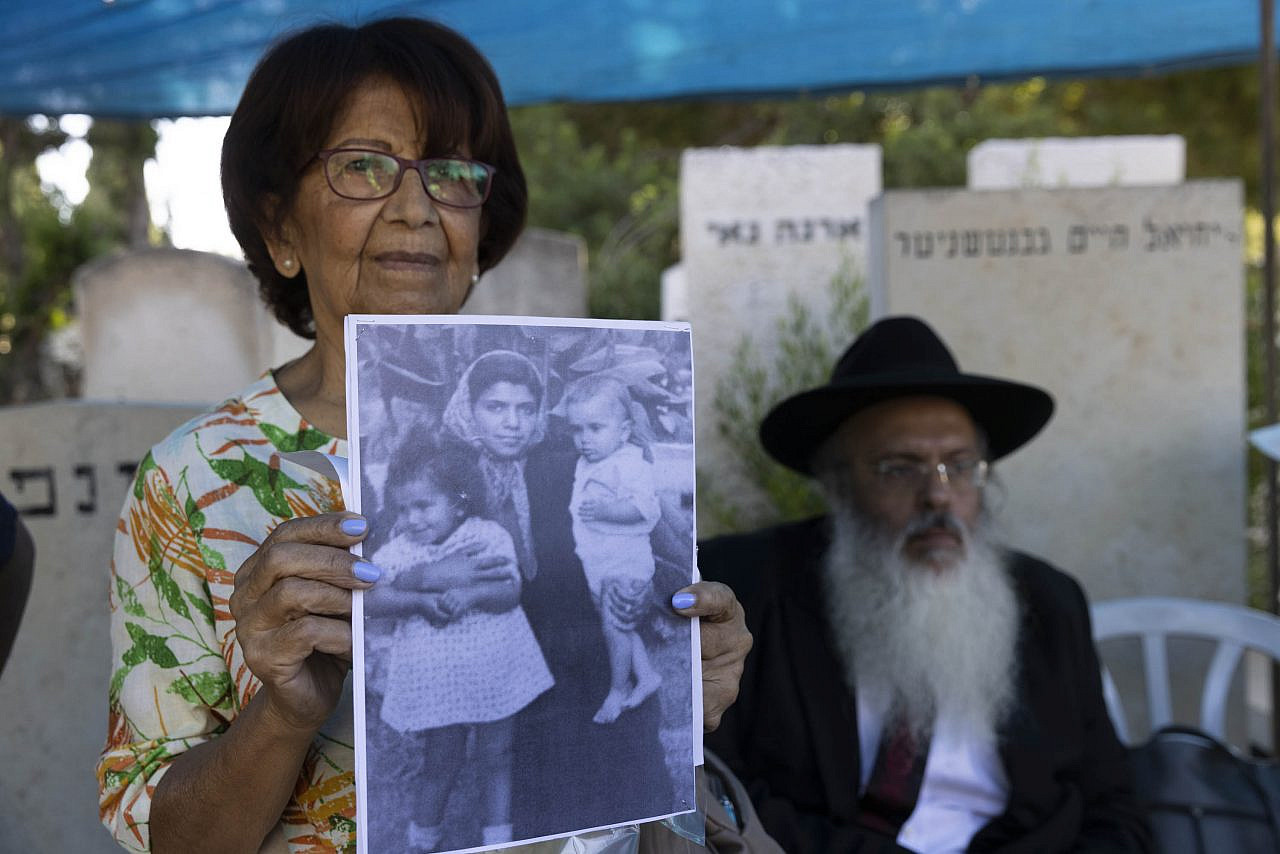
Haaretz is publishing articles calling the affair a “blood libel.”
How can anyone say these things when we know this report exists? Is it possible that the report would have shown there is truth to what is being said, so one can stand behind the statement that it’s a blood libel? What are we so afraid of?
In one of your previous interviews you called the idea of “separation” between Israelis and Palestinians “colonialist.” What did you mean?
I believe in the two-state solution. Do I think it is possible to achieve? It is very difficult, certainly in reality in the occupied territories, which is largely irreversible. Is this the model? In my opinion, yes. What is important to me is communication. I don’t believe in unilateral moves.
So what irked you about the word “separation” is its one-sidedness?
Yes. When you talk about separation unilaterally, it actually means continuing to manage the conflict, or “shrinking the conflict,” as Micah Goodman puts it. I don’t believe in that.
Shrinking the conflict, managing the conflict — this is Lapid and Gantz’s political program.
This is not my agenda. My agenda is the end of the occupation, the end of control over millions of people. Gantz’s decision to allow [Palestinian] workers into Israel is perfectly fine. But it is exactly part of shrinking the conflict. It is important to me, I support it, but is it my worldview? The answer is no.
What do you feel about sitting with Gantz, the man who led the 2014 war in Gaza, who is shutting down human rights organizations?
The decision is to play within the rules of the game or exclude yourself. I decided that I want to influence using the rules of the game. If I can come to Gantz on the issue of the organizations, for example, and I can talk to him from inside the government, I can influence from there. That is important.
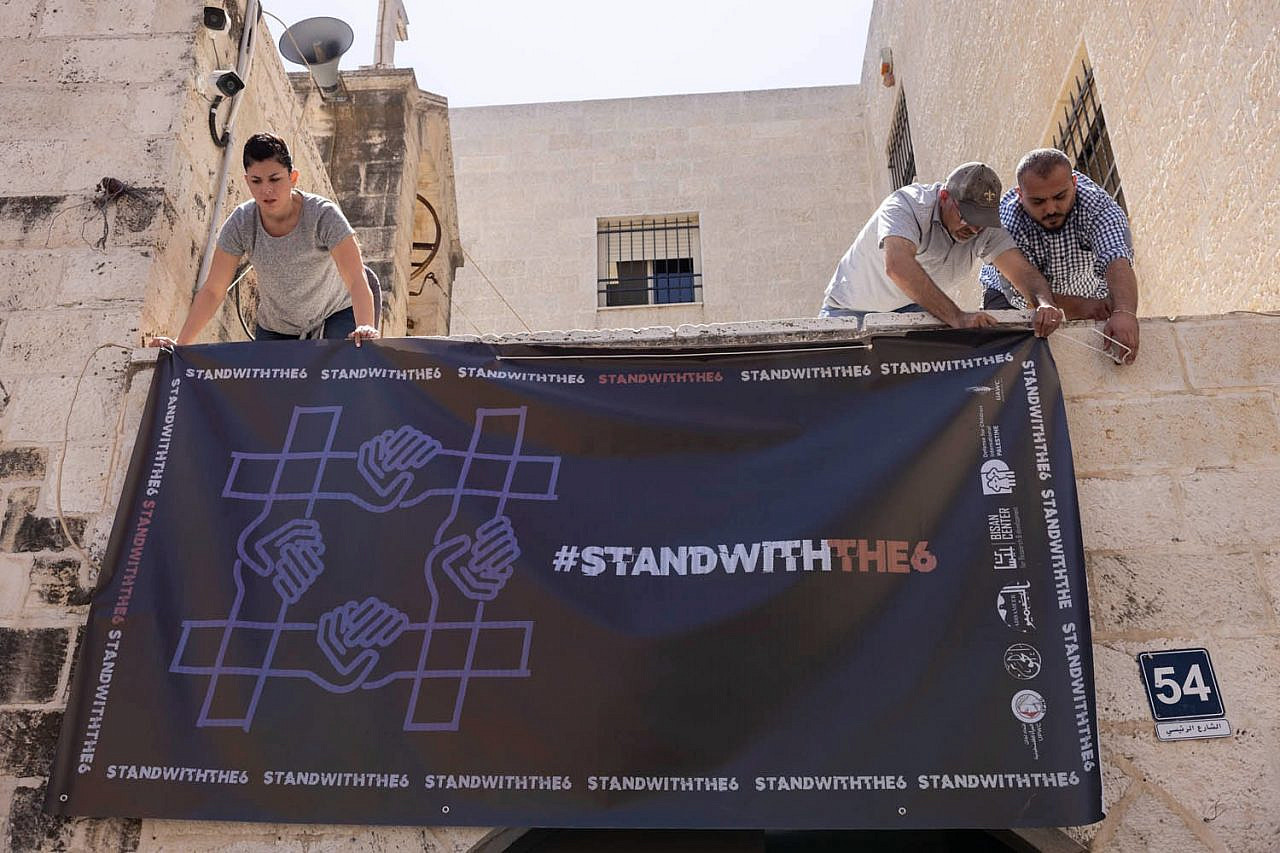
I could have decided not to play or come back. I founded Zulat [an anti-occupation think tank]. From the opposition I can state my positions without batting an eyelid or paying a price.
I thought that the challenge I am facing right now, in these circumstances, is to work within the framework. It’s taking responsibility.
Even if you sit with people whom you believe are committing crimes?
I will try to influence them. Do I think I will succeed 100 percent? The answer is no. But you have to know how to choose the right battles. I think I am more sober, more mature in the sense that I understand where we are and what mine and Meretz’s role is at this point in time.
If Al-Haq Executive Director Shawan Jabarin is thrown into prison for running a human rights organization, what will you do?
To me, this is unacceptable. It cannot pass.
I have never cut corners. My partners need Meretz in the government, and they know what my positions are. Zehava Galon is not someone who has now been brought back from the abyss so that some puppet leads Meretz, as long they have 61 [Knesset seats].
Not just Ben Gvir
When you meet with Lapid or Gantz, do you feel that they see you as someone who is part of their camp?
The answer is yes, categorically. On the day I announced my candidacy, I went to a meeting with Lapid. He asked me what I thought, and I told him that I had no specific demands for Meretz, only one request: do not delegitimize the Arab parties. We do not play this game.
Lapid knows who I am. When he sees me as his partner, he understands exactly who I am, I come as a package deal. In the end, this was my motivation to re-enter [politics] — it’s what tipped the scales. Meretz could disappear, and I could continue to sit at home, continue to be a grandmother to my amazing grandchildren, and what will happen here? I did this truly out of a sense of responsibility, I am invested in this, it is my whole life. I have been in this struggle since 1984.
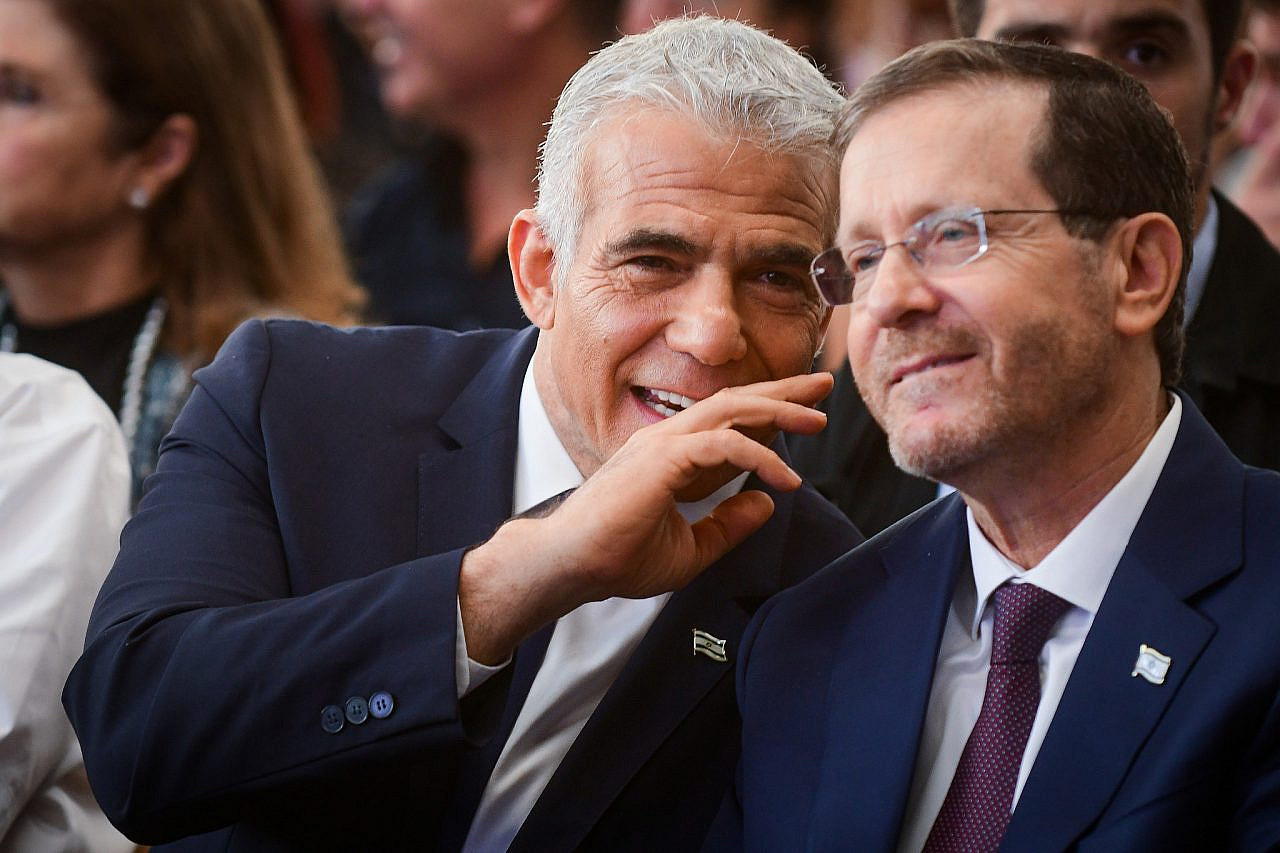
From your perspective, is the political center moving to the left? To accept Mansour Abbas and to meet with Ayman Odeh?
“I think it’s called pragmatism. [But] what began as a necessity due to the circumstances has turned into a reality. I don’t think that Gantz or Lapid ever thought that they would sit down with Mansour Abbas, but there is something in the dynamics of life here that is beginning to seep in, there is a process of internalization. You’re sitting in the same coalition with Mansour Abbas and talking to Ayman [Odeh] who will support you. A relationship has been created. There is a worldview, there are positions, there are objectives, there are goals, but in the end it is these small opposites that create reality.
It is completely reasonable to believe that Netanyahu will get 61 seats and Ben Gvir will be in the coalition. Does this mean we are in a new phase we haven’t seen before?
Yes. I don’t want to think like that, but the answer is yes. It’s not just Ben Gvir. These are people who have no red lines. It’s the combination of Netanyahu and his trial, who will do anything to escape justice, and Ben Gvir, who really is a Kahanist selling Kahanism for the entire family, and [Bezalel] Smotrich, God help us. I think we are at the cusp of a very dark period here. This is not empty scaremongering. It is going to get dark.
Do you think the left’s focus on the Netanyahu trial is a mistake?
“I think that Netanyahu’s trial is not simply another trial. Netanyahu symbolizes all of the ills of Israeli society, everything that we cannot allow to be done. It is impossible to separate.
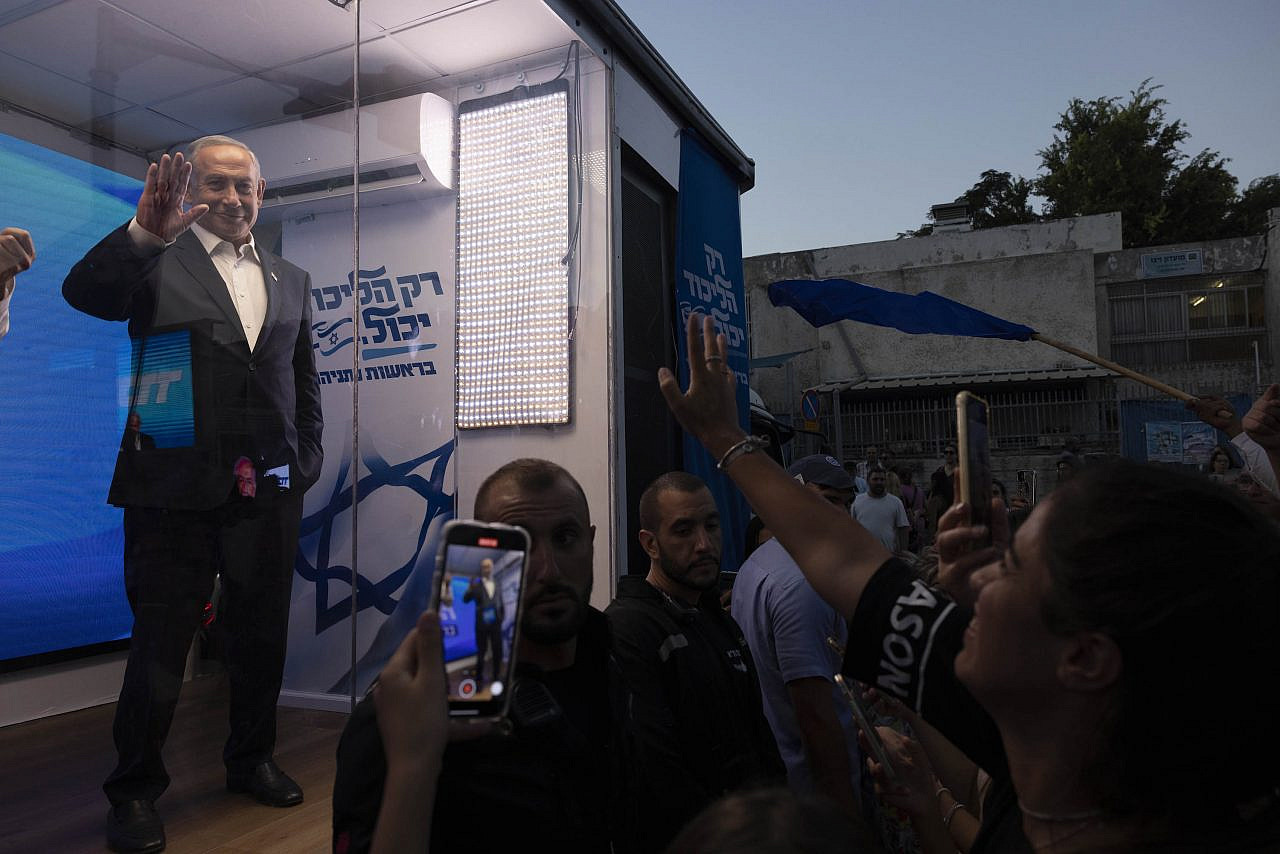
What did Netanyahu do in over a decade of rule? He persecuted everyone who criticized policies of occupation and settlements. In order to maintain continued control over the occupied territories, he had to eliminate the gatekeepers: the Supreme Court, the Attorney General’s Office, the free media, culture. He railed against civil society organizations as an enemy, the Arabs as an enemy, the left as an enemy. His trial is significant because it symbolizes everything he wanted to crush.
Are you optimistic about the election results?
It depends on what the attitude toward the Arabs will be. It is impossible to continue with this discourse when the Arabs are not in the game.
A version of this interview was first published in Hebrew on Local Call. Read it here.

